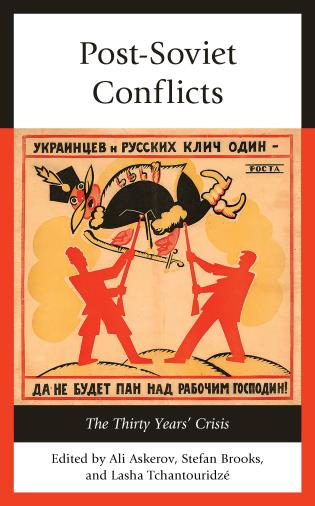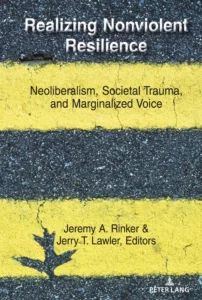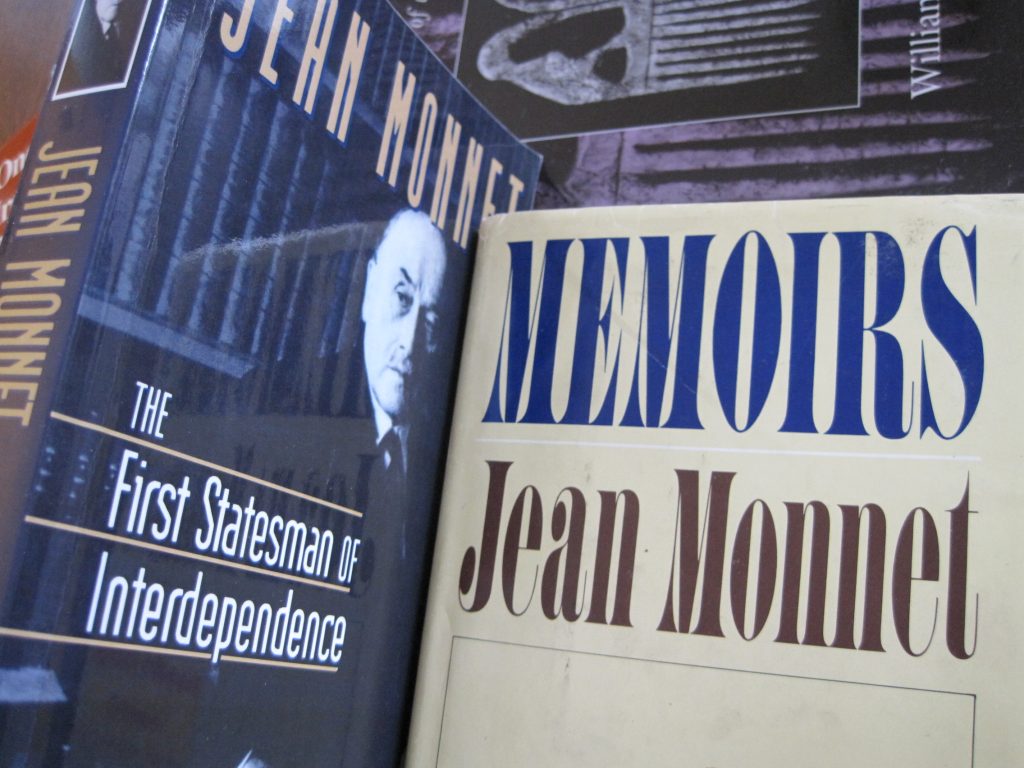Peace and Conflict Studies faculty Ali Askerov, Jeremy Rinker, Geneviève Souillac, and Douglas P. Fry are happy to announce recent publications. Articles and books by other PCS faculty also are in the works.

If you have had the occasion to Zoom with Professor Askerov recently, you may have been treated to the cover image of his co-edited book as the virtual background image during the conversation. Professor Askerov, along with colleagues Stefan Brooks and Lasha Tchantouridze, co-edit The Post-Soviet Conflicts: The Thirty Years’ Crisis (Lexington, 2020).
Professor Rinker and clinical psychologist Jerry Lawler collaborate on the edited volume Realizing Nonviolent Resilience: Neoliberalism, Societal Trauma, and Marginalized Voice (Peter Lang, 2020). Rinker explains that the “Authors in this edited volume engage with the complex impacts of neoliberal trauma in building peaceful and resilient societies around the world.” They will hold a virtual book launch panel discussion open to all on February 9, 2021 as a PCS event (please email jarinker@uncg.edu for the specifics).
Writing with an interdisciplinary team of colleagues from Columbia University, CUNY, and UAB, and in collaboration with Columbia University’s Sustaining Peace Project, Professors Fry and Souillac are the lead authors of “Societies within Peace Systems Avoid War and Build Positive Intergroup Relationships,” an innovative science-based approach to the study of cooperation and peace. The article came out online at the beginning of 2021 and is already receiving high Altmetric attention scores.
An exploration of the continuities and changes in post-Soviet conflicts over the last 30 years constitutes the primary focus of Dr. Askerov et al.’s edited volume. The Post-Soviet Conflicts addresses all major wars, civil wars, and rebellions in the former Soviet Union. The book has four sections which focus in turn on post-Soviet dynamics within the international context, conflicts in the Caucasus, conflict is Central Asia, and conflicts near Europe. A few of the topics explored in the book include the rise of Putin’s Russia in these conflicts, the Caspian Sea dispute, and how Chechnya’s independence was interrupted, and Ukraine’s tumultuous recent history. The volume considers the resolution of the post-Soviet conflicts, most of which have been lengthy damaging affairs. These conflicts may represent localized national or regional crisis impacting only the states involved, but for the Russian Federation they epitomize one huge post-Soviet crisis with no obvious end in sight.

Turning to Rinker and Lawler’s book, the contributions in Realizing Nonviolent Resilience address a multipronged problematique in the contemporary fields of peace studies and conflict transformation. Current neoliberal social and economic realities have had enormous impacts on the abilities of oppressed groups and marginalized communities to realize resistance and appreciate innate resiliencies.
Chapters in the book consider questions such as: How does the ubiquity of neoliberal economic forces exacerbate traumatized populations’ helplessness, and, thereby, influence their ability to grapple with their oppressors and engage in fruitful change solutions? This edited volume asks how nonviolent conflict practitioners might intervene to ‘treat’ traumatized, and often marginalized, populations suspended in the predicament of ‘acting in’ and ‘acting out’ their collective traumas. The work also illuminates the critical role of trauma in peacebuilding.
After over three years of collaboration with clinical psychologist Jerry, I am pleased to see this unique set of readings in print.
Dr. Jeremy Rinker
Each chapter provides an important window into trauma-informed peacebuilding while resisting the all-too-comfortable space of the victim narrative in contemporary social conflict.
The article “Societies within Peace Systems Avoid War and Build Positive Intergroup Relationships,” by Fry and Souillac et al. appears in Humanities and Social Sciences Communications.
The authors define peace systems as clusters of neighboring societies that do not make war with each other. One example are the five Nordic nations that haven’t fought with each other for over 200 years. The mere existence of peace systems is important because it demonstrates that creating peaceful intergroup relationships is possible whether the social units are tribal societies, nations, or actors within a regional system.
The researchers found that peace systems from different parts of the world scored significantly higher than a comparison group regarding overarching common identity; positive social interconnectedness; interdependence; non-warring values and norms; non-warring myths, rituals, and symbols; and peace leadership. Co-author Souillac emphasizes “The findings have policy implications for how to promote and sustain peace, unity, and cooperation among nations to address climate change, pandemics, and other global threats.”

